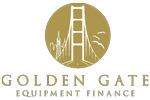Equipment leasing and finance is not something taught in schools. The largest accounting firms have specialists in equipment leasing because it is so unique. If you are new to equipment leasing, you will gain great insight here. If you are a veteran in the equipment leasing business, you will see different strategies and options that could help you in the future. Please contact us below if you have any question on these items or others.
Not knowing this information is like buying a used car without access to the odometer!!


